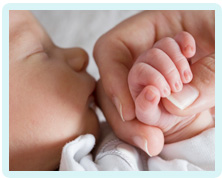
How Common Are 3rd Degree Tears?
Third and fourth degree tears are perineal injuries that happen during childbirth. They are severe as they extend into the anal sphincter complex.
How common are third degree tears?
Fortunately third and fourth degree tears do not happen frequently. The Royal College of Obstetricians and Gynaecologists predicts that, on average, around 3% of women in the UK will have a 3rd or 4th degree tear.
However, the incidence rate is higher for women giving birth vaginally for the first time, with six in every 100 primiparous patients sustaining a 3rd or 4th degree tear. The incident rate drops in women who have had a former vaginal delivery to just 2 in every 100 patients.
Those who had a 3rd or 4th degree tear during a previous delivery are more likely to tear again. One study found that 7.2% of women who had a former 3rd degree tear sustained the injury for a second time.
Will I tear while giving birth?
It is not possible to predict who will tear while giving birth. There are certain factors that increase the risk. As described above, a first vaginal delivery increases the chance of a 3rd or 4th degree tear. Other risk factors include:
- A long second stage of labour
- Assisted delivery with forceps or ventouse extraction
- Shoulder dystocia
- A larger than average baby
- A former 3rd or 4th degree tear
Can I prevent a 3rd degree tear from happening?
It is difficult to prevent a 3rd degree tear from happening because you cannot tell at the outset how a birth is going to progress. For instance, you will not know whether or not you will need an assisted delivery.
The exceptions are having a larger than average baby (which should be detected on a scan in the weeks before your birth), and having a previous tear. If either of these apply to you, you might want to consider an elective caesarean section.
There is some evidence to suggest that applying a warm compress to the perineum during the pushing stage does help to prevent a tear.
Speak to a solicitor
If you think your 3rd degree tear should not have happened, or it was negligently managed, please get in touch with us at Glynns Solicitors. We specialise in medical negligence claims and will advise you whether or not you have been the victim of substandard medical care.
Please call us on 0800 234 3300 (or from a mobile 01275 334030) or complete our Online Enquiry Form.



